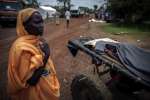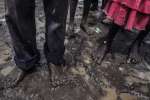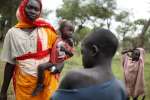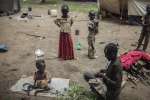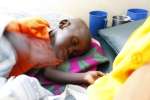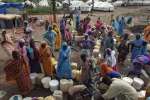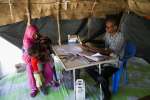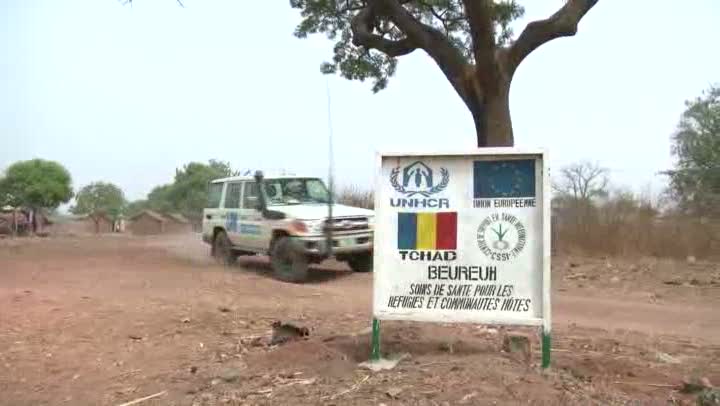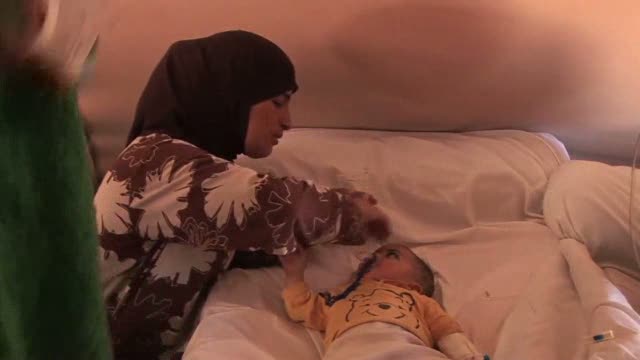- Text size
 |
|  |
|  |
| 
- Français
World AIDS Day: HIV and AIDS remain a policy priority for UNHCR
News Stories, 1 December 2010
GENEVA, December 1 (UNHCR) – As UNCR staff commemorated World AIDS Day in offices around the globe, the head of the refugee agency on Wednesday stressed that HIV and AIDS remained a policy priority for the organization, while adding that more could be done.
The theme this year is "Universal Access and Human Rights." This was chosen to address the critical need to protect human rights and attain access for all to HIV prevention, treatment, care and support. The vast majority of people with HIV and AIDS live in lower- and middle-income countries, where most of the people of concern to UNHCR are hosted.
Noting that some 1.8 million people living with HIV are affected by conflict, disaster or displacement, UN High Commissioner for Refugees António Guterres revealed in a special message to staff that "approximately 87 per cent of refugees have access to HIV treatment."
He added that 75 per cent of pregnant refugee women have access to prevention of mother-to-child HIV transmission programmes when these are available to surrounding host populations.
Highlighting another positive development, Guterres said that "earmarked funds from non-traditional sources for HIV to UNHCR have increased by over 33 per cent for 2010-2011," and added that "HIV workplace programmes continue to be strong."
Meanwhile, UNHCR's role in countering HIV/AIDS has recently been reinforced through its appointment as co-lead – with the World Food Programme – for HIV issues in emergency response. UNHCR is already the lead agency in IDP (internally displaced people) crises in the areas of protection, shelter and camp coordination and management.
"We can, however, do more," said the High Commissioner. "AIDS can be better addressed in the Consolidated Appeals Process [for collective fund-raising]. Refugees and internally displaced persons can more systematically be included in country proposals to the Global Fund to Fight AIDS, Tuberculosis and Malaria," he proposed.
"More can be done to combat stigma and discrimination and ensure access to prevention and treatment services among our persons of concern as well as our staff and their family members," Guterres added.
"I call upon all our staff and their family members to help accelerate HIV prevention. Let us use this day to promote the human rights of all those living with HIV by keeping protection as the cornerstone of our strategy," he concluded.
Jean François Durieux, director of UNHCR's Division of Programme Support and Management, had earlier called on UNHCR staff in Geneva and offices around the world to organize special events with the refugee agency's partners, including national governments and people of concern.
"I would like to encourage you to wear the red ribbon to demonstrate care and concern about HIV and AIDS, and to remind others of the need for their support and commitment," he said. A three-storey high poster of the red ribbon – an AIDS awareness-raising symbol – is hanging on the façade of UNHCR's headquarters building in Geneva.

